
Foto: Sven B - stock.adobe.com
Public transport, flying, cycling and driving
Frankfurt Rhine-Main is a big region, but it‘s easy to get around quickly and often in an eco-friendly way. What‘s more, you can get to the parklands, lakes and hills easily.
You’ll probably find yourself using the RMV (Rhine-Main Transport Authority) network the most during your time here. The network is really extensive and includes streetcars, buses, subways and above-ground light rail. The RMV website (www.rmv.de) has lots of useful information in different languages, plus a trip planner, network maps and articles on special events in the area and how to get to them.
The system is really efficient and reliable. While it’s not the cheapest option, the cost/benefit ratio for the services is excellent. For example, a ride from downtown (Konstablerwache) to the airport costs less than €5 and takes under 30 minutes.
SUBWAYS – THE U-BAHN
If you’re looking for the fastest way to get around Frankfurt, the U-Bahn is the way to go. There are nine U-Bahn lines, which cover most of Frankfurt, from Südbahnhof in the south all the way up to the foot of the Feldberg in Hohemark in the north. The lines are numbered, from U1 to U9.
LRT – THE S-BAHN
The S-Bahn network is designed to connect Frankfurt to nearby cities like Darmstadt, Wiesbaden, Friedberg and Hanau. It serves most of the suburbs in all directions. Two S-Bahn lines run all the way to Wiesbaden (one track runs north of the River Main, the other south) and Offenbach, which is right next to Frankfurt to the east, and then on through to Hanau. The route to Darmstadt connects the leafy towns of Neu-Isenburg and Langen along the way.
STREETCARS – THE STRASSENBAHN
Frankfurt has had a streetcar (Straßenbahn) network since 1872, and it’s still a very popular mode of transport today. There was even a streetcar route that ran down the middle of the Zeil pedestrian area, with a bell to keep people off the tracks. It usually links the city centre with districts that aren’t served by the underground. Just a heads-up: one or two streetcar lines might be temporarily closed during demonstrations or large festivals in the city. One streetcar is especially for celebrations – the party ‘cider streetcar’ known as the Ebbelwoi Express (www.ebbelwei-express.de)
BUSES
The local bus system also covers areas that the rapid transit trains don’t reach. Some of them stop at every street or so, and they get you very close to your destination, just like the streetcars do. Frankfurt has a lot of bus lanes these days, which means the morning bus is faster than the commuters who have opted to use their own car in the rush hour.
In the early hours of the morning, the only form of public transport available is the bus. There are also a few special night buses that run between midnight and dawn, and you’ll see “N” before their number on the schedule. Just to let you know, these buses don’t stop at regular bus stops. If you want to know which stops these buses use, just look for signs with an “N” surrounded by stars or visit www.rmv-frankfurt.de/night. Also, on weekends and the night before public holidays, there are special night buses leaving from Konstablerwache in Frankfurt City.
TAXIS
Needless to say, public transport or bikes aren’t the only way to get around. The two main forms of private transport are taxis and private cars.
Newcomers may find taxi fares a bit pricey compared to what they’re used to back home. But remember, for that extra money you get to travel in a comfortable, late-model Mercedes. The standard starting charge for a taxi is €4.00, with an additional charge of €2.40-4.00 per kilometre. You’ll find taxi stands outside all the main train stations, as well as at major business locations like the Old Opera House, the Stock Exchange, Hauptwache, and Konstablerwache. You’ll also find them at the airport.
It’s not usual for taxis to stop on the street to pick up passengers, but some will. It’s much more effective to call a cab than to try to hail one. Cabs ordered by phone usually arrive within five or ten minutes. You can call Taxi Frankfurt on 069 23 0001 or 069 23 0033 to order a taxi.
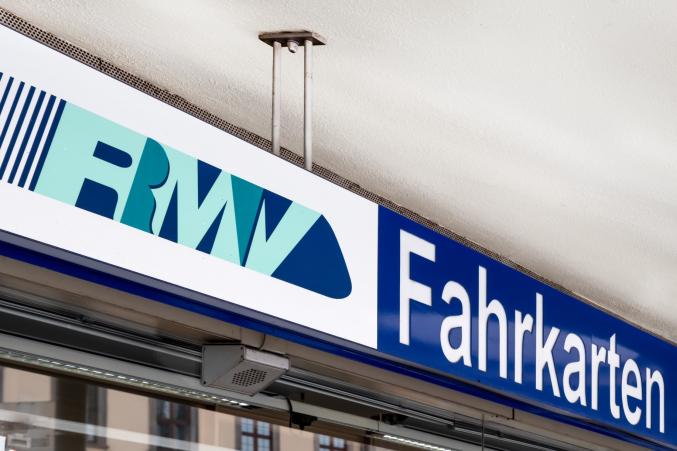
RMV Tickets and Passes
You can either buy your tickets for individual trips at the many ticket-dispensing machines or by App on your smartphone – or buy a travel pass valid for periods of one day/week/month or even an entire year.
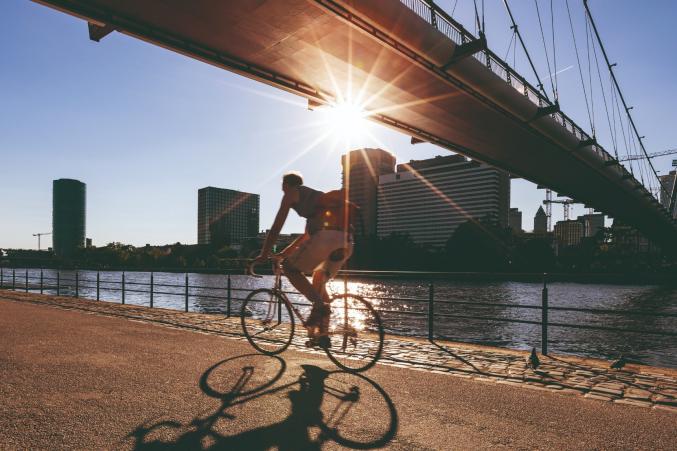
Bike, e-Scooters and car Sharing Services
There are three main bike-sharing services operating in Frankfurt Rhine-Main, Deutsche Bahn’s “Call a Bike” service, Byke, and Nextbike.
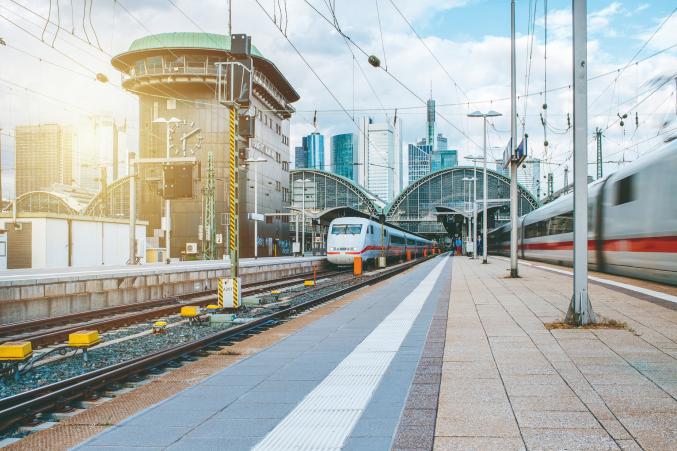
Getting Away – Rail Travel and Regional Buses
Deutsche Bahn is the German national railway system. Frankfurt happens to be one of its key interchange points, with Frankfurt’s Main Railway Station (Hauptbahnhof) its key hub.
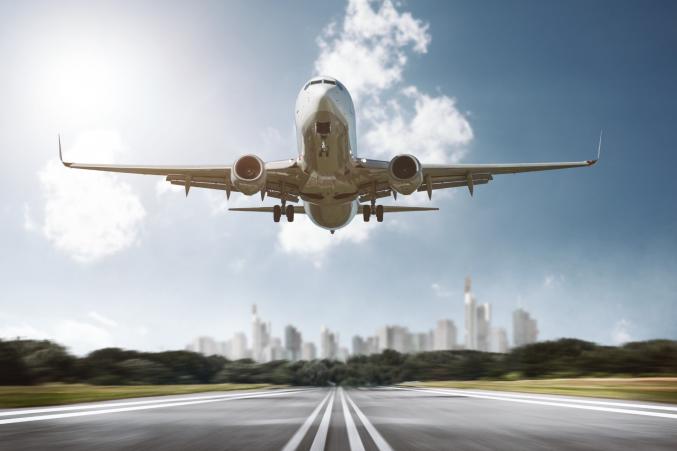
Frankfurt Airport
Frankfurt Airport is one of the busiest in Europe, serving almost 60 million passengers a year. Frankfurt Airport has two terminals, with a third one currently under construction.
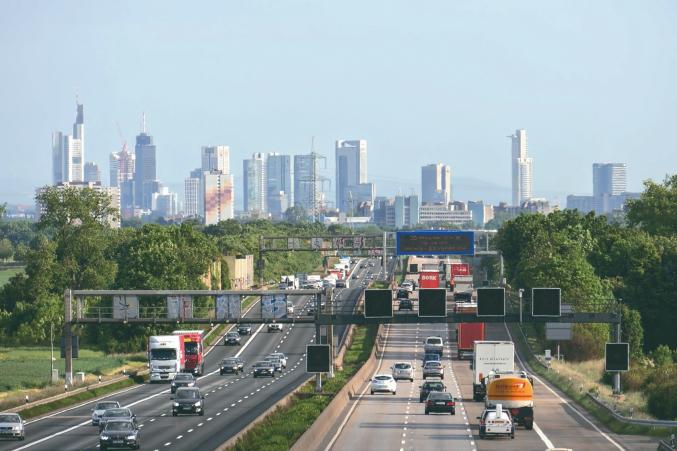
Traffic Regulations
The traffic rules in Germany are different from what you might be used to at home. It’s important to get to know the basic rules and to learn about the international road signs.

